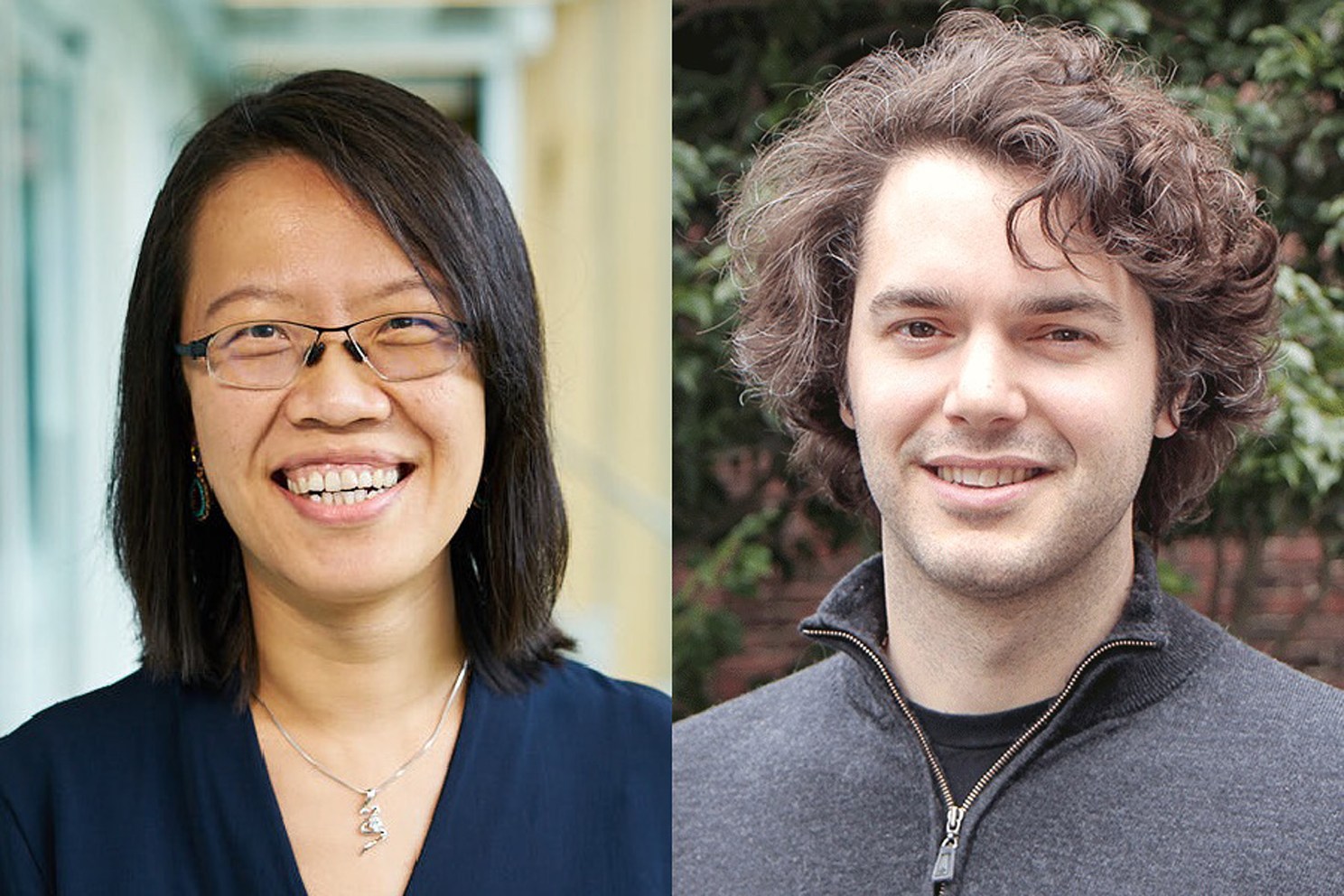Two Harvard scientists have been named to the New York Stem Cell Foundation (NYSCF) Investigator Program. As part of the 2019 class of NYSCF – Robertson Investigators, Ya-Chieh Hsu and Nicholas Bellono are recognized for their cutting-edge research, which has the potential to accelerate the discovery of new treatments and cures for human disease. The awards will provide $1.5 million over five years in seed funding as the researchers establish and grow their independent labs.
“The NYSCF – Robertson Investigators are some of the brightest minds in the stem cell and neuroscience fields,” said NYSCF CEO Susan L. Solomon in an announcement. “This award gives them the freedom to pursue new and inventive ideas that may not get funded through traditional sources, pushing research toward better treatments for patients.”
Hsu, the Alvin and Esta Star Associate Professor of Stem Cell and Regenerative Biology, is a 2019 NYSCF – Robertson Stem Cell Investigator. Her lab uses skin as a model to understand how cells interact with other cells and with larger biological systems. Their goal is to regenerate fully functional skin for those who have suffered severe injuries.
“The non-restricted nature of this funding really allows us to dream big and be creative in solving important problems using innovative approaches,” said Hsu. “The support from NYSCF will allow high-risk, high-reward projects in our lab to flourish, including developing novel approaches to promote regenerative wound healing, and expanding our research on how stress influences diverse changes in the skin.”
Bellono, an assistant professor of molecular and cellular biology, is a 2019 NYSCF – Robertson Neuroscience Investigator. His lab is interested in how organisms adapt to detect salient environmental signals based on their specific ecological or behavioral context. His group’s curiosity-based approach allows them to explore specialized, unconventional systems to illuminate the fundamental mechanisms of signal transduction, ion channel biophysics, sensory biology, and evolution.
“This award offers the opportunity to be involved with an excellent community to learn interesting new biology and also provides important financial support,” said Bellono. “Such conceptual and practical support will help further our studies regarding how organisms sense and respond to their specific ecological context.”





